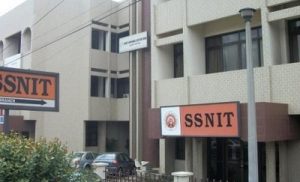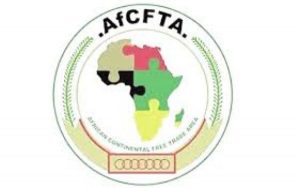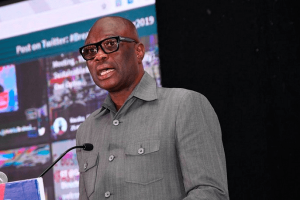Mr Johnny Mantey, Vice President of the Ghana Institute of Freight Forwarders, has called on shipping lines operating in Ghana to adhere to the tenets of Legislative Instrument 2190 in its charges and practices.
The Ghana Shippers’ Authority Regulations 2012 (L.I. 2190) is the legal framework that mandates the GSA to regulate all charges and other issues related to the maritime sector.
Mr Mantey was speaking to the media on issues of unfair treatment raised by freight forwarders, importers, and exporters against the shipping lines.
He said while the various institutions within Ghana’s shipping industry avail their tariffs for vetting and regulating by the Ghana Shippers’ Authority, the shipping lines on the other hand did not adhere to the regulations.
He stated for instance that the port additional charges which was met with a lot of controversies was unjustifiable, saying those charges among others imposed by the shipping lines should be embedded in the freight charges.
He also bemoaned some administrative practices by the shipping lines operating in the country, stressing that if he unload a container on Saturday, and could not return the empty box to the shipping lines as they do not work on weekends even though the Customs Division of the Ghana Revenue Authority (GRA) works throughout, you will still be charge.
“Today, you can pay your custom duties at 02:00 hours, 04:00 hours, but you cannot do that with the shipping lines, 14:00 hours their portals are shut,” he said adding that, “yet they charge for demurrage on Saturdays, Sundays and holidays, what wrong have we done as Ghanaians?”
Mr Akwasi Serebour Boateng, an Executive Member of the Association of Customs House Agents, Ghana (ACHAG), on his part said shipping lines are in the business of profiting from delays caused in the clearance chain.
Mr Boateng stressed that there was incentive to delay the clearance system as according to him, “if you’re in the position whereby the more you delay me, you make more money, why won’t you delay me?
He reiterated that it should be possible for them to release or drop an empty box on weekend, saying “if I have a teller’s release from my principal, what else does the shipping line here need again, they have all the registered clearing agents in their system, but all these bureaucracies are there for them to make money from the system”.
He also raised concern on the failure of the shipping lines to apply the standard Bank of Ghana’s exchange rates for business as compared to other players in the clearance chain.
“As we speak, the Bank of Ghana exchange rates is about 5.9 but the shipping lines are using 6.5 per dollar, there is no one to speak for us so you either pay or you keep quiet,” he said.
Nana Fredua Agyemang Ofori-Atta, Executive Secretary of the Committee of Freight Forwarders Association (CoFFA), said it was unfortunate that, all the combined efforts by players in Ghana’s maritime trade to create a cost and time efficient port, could be severely derailed by the actions of the shipping lines.
Nana Ofori-Atta said while freight forwarders and other stakeholders try to do away with anything that would add up to their cost in the clearing process, the shipping lines on the other hand have no incentive to tow the same line as they make money when they slow down the process.
He therefore urged the Ghana Shippers Authority to do its best in aiding shippers, while advising shipping lines to stop undue delays and other added cost to effectively contribute to the country’s port efficiency project.







